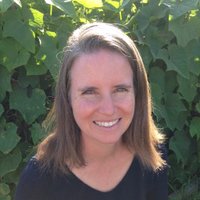
Poverty & Inequality
@centerpovineq
The Stanford Center on Poverty and Inequality monitors trends in poverty and inequality in the United States.
ID: 423658186
http://www.inequality.com 28-11-2011 19:41:39
1,1K Tweet
13,13K Followers
371 Following

Individualized education plans (IEPs) for those students who learn differently—devised to close the achievement gap—often require high-intensity teacher or tutor engagement either one-on-one or in small groups, which is often lost with remote schooling. inequality.stanford.edu/covid/online-l…



There was a recognition that time away from friends, physical and social activities, and loved ones breeds social isolation. "They don’t have friends and other kids they can play with and normal stuff, and they can’t do it. So, it’s very hard for them." inequality.stanford.edu/covid/online-l…

Several teachers interviewed by the #AmericanVoicesProject spoke about trying to reach kids without the benefit of in-person connection. They tried to find new ways to connect with students: one sent home a "reading buddy" stuffed animal to all students. inequality.stanford.edu/covid/online-l…


"Online schooling that didn’t work so you have no option but to take them to school, just hope they are in safe hands.…[My daughter] wanted to see the students, her teacher, she wanted to be in the classroom." –Parent interviewed by #AmericanVoicesProject inequality.stanford.edu/covid/online-l…

Many parents interviewed by the #AmericanVoicesProject who were considering sending their kids back to school were put off by the virtual learning their children had received in spring 2020, and unsure whether sending them back was worth the health risk. inequality.stanford.edu/covid/online-l…

"The kids are not paying attention because the teacher can mute them anytime…I look at my son, they’re dancing on the screen.…They were supposed to open the school. But I’m fearful because my son has asthma." –Parent interviewed by #AmericanVoicesProject inequality.stanford.edu/covid/online-l…


"The contract is that a parent has to be home at least the first 4 hours of school. I literally can’t leave the house until like after 1....We do everything together now. They’re like sewed to me almost." –Parent interviewed by #AmericanVoicesProject inequality.stanford.edu/covid/online-l…



On this episode of American Enterprise Institute’s Hardly Working podcast, the Atlanta Fed’s Alex Ruder discusses workforce development policy, career pathway design, and the Atlanta Fed tool that helps identify benefits cliffs. Listen here: atlfed.org/2YuM21w

If you missed today's lively discussion on universal basic income as a means to address job loss spurred by automation and AI, a recording will be available on our YouTube channel soon. bit.ly/3H4xxCR Andrew Yang🧢⬆️🇺🇸 Darrick Hamilton Mark Duggan Stanford Institute for Economic Policy Research Stanford Basic Income Lab





New poverty & #inequality data was released this morning by @USCensusBureau, showing dramatic increase in #poverty under the Supplemental Poverty Measure, esp for kids. Thread by Poverty & Inequality Exec Director Sara Kimberlin explains what the numbers mean: x.com/skimberCA/stat…

It’s poverty data day! Today @USCensusBureau released the latest income and #poverty data for the United States, for calendar year 2023 – here are some key takeaways: 🧵 1/ Poverty & Inequality


